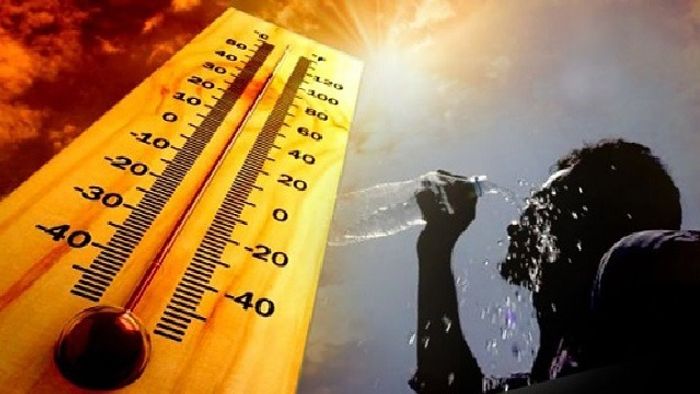Assam swelters under prolonged heatwave, relief likely after June 13
Large parts of Assam, including the capital city Guwahati, continue to reel under the grip of an intense heatwave, as temperatures soar above seasonal norms, compounded by oppressive humidity. The Regional Meteorological Centre in Borjhar has issued a heat and humidity alert for Assam and Arunachal Pradesh, valid for the next 48 hours.

- Jun 11, 2025,
- Updated Jun 11, 2025, 8:17 PM IST
Large parts of Assam, including the capital city Guwahati, continue to reel under the grip of an intense heatwave, as temperatures soar above seasonal norms, compounded by oppressive humidity. The Regional Meteorological Centre in Borjhar has issued a heat and humidity alert for Assam and Arunachal Pradesh, valid for the next 48 hours.
According to the India Meteorological Department (IMD), the unusually high temperatures are attributed to clear to partly cloudy skies, resulting in strong solar radiation during the daytime.
“Maximum temperatures are expected to exceed 35°C in several locations across Assam and may remain 3°C to 5°C above normal,” an IMD official stated.
By 11 a.m. on Wednesday, Guwahati had already recorded 33°C, with discomfort levels rising due to high relative humidity. On Tuesday, North Lakhimpur reported the highest temperature in the state at 38.0°C, while Haflong, a hill station in Dima Hasao district, logged the lowest minimum temperature at 21.0°C.
Rain on the Horizon: Monsoon Set to Arrive Soon
Despite the sweltering conditions, the Met Department has predicted light rainfall with lightning in isolated parts of Guwahati and other districts over the next 24 hours. Similar weather is expected on Thursday, June 12.
From June 13 onwards, moderate to heavy rainfall is forecast across many parts of the state, signaling the likely onset of the southwest monsoon in Assam, offering potential respite from the prevailing heat.
Hot Nights Continue to Add to Public Discomfort
While daytime heat remains a concern, nighttime temperatures are also hovering above normal, with minimum temperatures expected to remain 1.6°C to 3.0°C higher than average in various districts. This is leading to persistently warm and uncomfortable nights, especially in urban areas. Officials stated there will be no major change in maximum or minimum temperatures for at least the next 48 hours.
Health Advisory Issued for Vulnerable Populations
In light of the ongoing heatwave, the IMD has issued a public health advisory, particularly for infants, the elderly, pregnant women, and individuals with pre-existing health conditions. Although the heat levels are considered tolerable for most people, sensitive groups may experience mild health issues, including dehydration, exhaustion, and heat stroke.
Precautionary measures advised:
Wear lightweight, light-colored cotton clothing
Use umbrellas or hats when outdoors
Drink water regularly, even without feeling thirsty
Avoid prolonged exposure to sunlight, especially for farmers, outdoor laborers, and children
Never leave children or pets inside parked vehicles
Monitor mass gatherings or rallies during peak heat hours
Authorities urge the public to stay vigilant, hydrated, and avoid unnecessary outdoor activities until the arrival of cooler, rain-laden monsoon winds later this week.